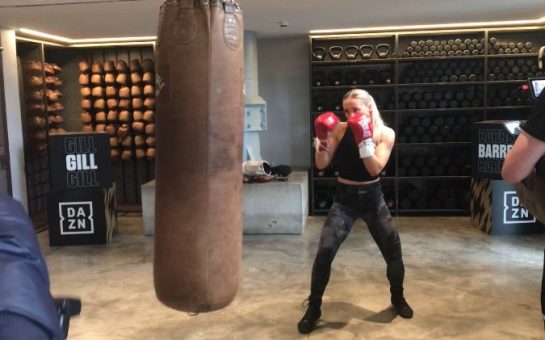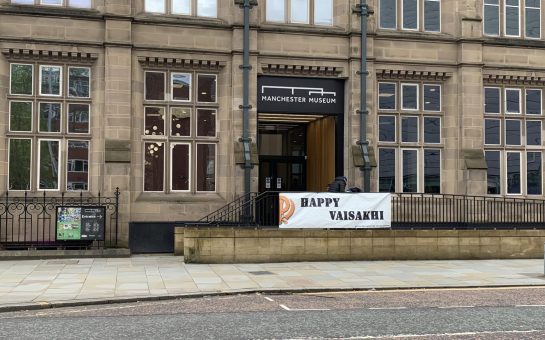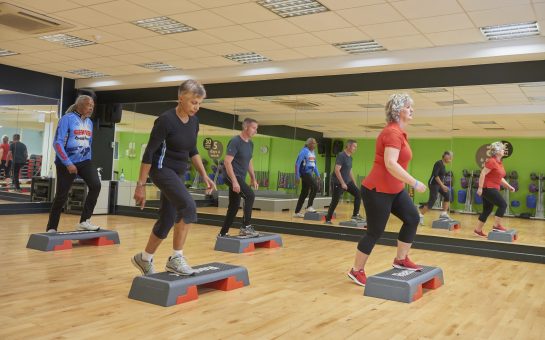Football is the North’s treasured child, with Greater Manchester its beating heart.
And when looking back at players of the beautiful game, it is something that stirs more than a hint of nostalgia for the greats of the past, both distant and recent.
Having to select footballers across different eras makes it almost impossible to compare them in terms of talent, but what is not in doubt is the way each of them graced the pitch – with their impact felt far beyond just the Mancunian boundaries.
There are so many excellent professionals to choose from but it is their lasting legacy which shapes the following list – and while it will quite certainly – and rightly – ignite fierce debate, this is merely the wonderful testament to Greater Manchester’s ability to produce such legendary figures, many of whom have been unlucky to miss out.
5. Nobby Stiles
Stiles – Not one of those names that strikes the mind as a Bobby Charlton or a George Best, but in that era, Nobby Stiles was the engine that allowed the wheels of goal-scoring talent at Manchester United to spin smoothly for more than a decade.
Famous more for his toothless grin and seemingly weedy complexion, Collyhurst-born Stiles was a terrifically tenacious ball-winning midfielder, and the teams he played in would have been poorer without him.
Sir Alf Ramsey remarked that Stiles was one of five world-class players he had in his 1966 World Cup squad.
As a member of that prestigious bunch of English gentlemen, Stiles has the distinct honour of being Greater Manchester’s only holder of both a World Cup and European Cup medal – both won at Wembley.
4. Stan Bowles
Following an early career at Manchester City, one of football’s great bad boy characters ended up at Queens Park Rangers, where it was hard not to miss him with trademark long hair and sideburns.
Bowles, another hailing from Collyhurst, quickly established himself in one of QPR’s great sides as a terrifying attacking force together with Gerry Francis, where they narrowly missed out on the 1976 Division One title.
He also gained infamy for allegedly kicking a ball at the FA Cup during a league match with holders Sunderland in 1973 – add that to his turbulent social life and Bowles stands out as one of the great eccentrics, reflecting football’s descent into chaos during the decade.
3. Geoff Hurst
Geoff Hurst, you say? Indeed, Sir Geoff, England’s hat-trick hero in 1966, was born in Ashton-under-Lyne, despite his Essex tones and lifelong association with West Ham directing all evidence to the contrary.
Clinical striker Hurst managed a goal in almost every other game in claret and blue (including a unique double hat-trick), winning an FA Cup and European Cup Winners’ Cup in the process, before winding his career down at Stoke City and a short spell in America.
Where the Hammers have in the past boasted that they ‘won the World Cup’, Manchester can retort that it brought one of the Boleyn Ground’s favourite sons into the world 71 years ago.
2. Paul Scholes
The ‘Ginger Prince’ – Salford-born, Langley raised – featured on MM’s list of the region’s sporting heroes recently, and so any ranking to do with football should warrant his inclusion without a second thought.
There’s very little original material or praise that can be written about or heaped on the midfield genius’s ability to hold the ball, pick a pass and motor into the box to create a chance – or his outstanding career at Old Trafford, complete with trophy treasure chest.
His style of play is now something of a diminishing art among Englishmen– fans want those players, and yet they are in short supply, so they talk of the short, asthmatic, quiet lad who became the best of a generation.
It will be strange to watch football knowing Scholes has left the creative work to others who can only dream of matching his achievements.
1. Nat Lofthouse
Nat Lofthouse was aptly nicknamed ‘Lion of Vienna’ for a goal for England against Austria that demonstrated the physical punishment he could take on a football pitch in an age where, clichéd as it may sound, men were men.
However, the imposing beast who will be forever Bolton scored an incredible 30 goals in 33 appearances for his country – the kind of ratio that will probably never be bettered, nor will it be forgotten.
For his beloved Wanderers he notched over 250 league goals in a career lasting more than 15 years, painting pictures of a classic English centre-forward who would never turn down an invitation to challenge for a ball three feet off the ground.
————————————————————————————————————————————–
But narrowing it down to just five really is a thankless task, so honourable mentions should go to:
Tommy Lawton
Powerful striker Lawton, who scored 22 in 23 for England, is also noted for his time at Third Division Notts County at a time when he was one of the most revered players in the land.
Alan Ball
England’s youngest World Cup winner at just 21, Ball played for Everton and Arsenal during a career in which he amassed nearly 1,000 competitive appearances.
Lee Dixon
Boyhood City fan Dixon was a fixture in Arsenal’s defence for well over a decade, helping them back to the summit of the game under Arsene Wenger.
Brian Kidd
Followed a distinguished playing career up with an illustrious coaching career, and admired by both sides of Manchester.
Francis Lee
City legend Lee was part of their rip-roaring trophy-laden team of the 1960s and 70s, and with 10 goals in Manchester derbies, it is no wonder he is among the greats.
Oh, and what about Simone Perrotta, who won the world cup with Italy in 2006? Born in Ashton-Under-Lyne, of all places!
Do you agree with MM’s list? Have your say below.
Picture courtesy of James Adams, via Wiki Commons, with thanks.
For more on this story and many others, follow Mancunian Matters on Twitter and Facebook.



